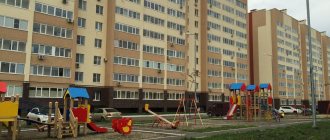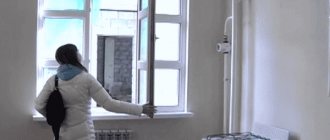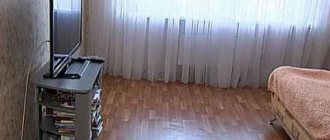Property is not only a social and personal benefit, but also a burden placed on the holder of property rights.
Ownership implies that the owner has not only rights, but also responsibilities associated with the object he owns.
In many cases, the decision to maintain the property is at the discretion of the owner, since it is assumed that maintaining the property in proper condition serves primarily his interests. However, certain categories of property are subject to a legally binding maintenance burden. For example, the owner of an agricultural land plot is obliged to take measures to prevent the deterioration of soil fertility.
Definition of the concept of “burden of property maintenance”
In accordance with Art. 210 of the Civil Code of the Russian Federation, the owner bears the burden of maintaining the property belonging to him, unless otherwise provided by law or contract. However, in the Civil Code of the Russian Federation there is no concept of the burden of maintaining property.
What responsibilities the “burden of maintaining property” includes, for example, was indicated in the ruling of the Constitutional Court of the Russian Federation dated November 2, 2006 N 444-O:
“It is the owner, as a general rule, who bears the burden of maintaining the property he owns, which involves, along with the need to bear the costs of maintaining the property in proper condition (major and current repairs, insurance, registration, security, etc.) and fulfilling other requirements, emanating from state and local government bodies authorized by law (for technical, sanitary inspection, etc.), and the obligation to pay taxes and fees established by law.”
Dictionaries and legal literature offer the following definitions of this concept:
The burden of maintaining property is monetary expenses, non-valuable costs for maintaining property, which are usually borne by the owner of the property, unless otherwise provided by law or contract. (Big Economic Dictionary. - M.: Institute of New Economics. A.N. Azriliyan. 1997.).
The burden of maintaining property can be defined as the owner’s obligation to maintain the property in a serviceable, safe and suitable condition for use in accordance with the purpose of the property, to pay taxes and fees provided by law, and to insure the property if necessary.
The burden of maintaining property in civil law is understood as the civil obligation of the subject of law to perform certain actions (as well as refrain from performing certain actions), as well as to incur expenses caused by and associated with the possession, use, or, in some cases, the possibility of disposing of property.
Commentary on Article 210 of the Civil Code of the Russian Federation
1. The commented article places emphasis on the costs and efforts that the owner must bear and undertake in relation to the property he owns. This emphasizes that in addition to the owner having the items specified in Art. 209 of the Civil Code of Rights and responsibilities (burden) for the maintenance of the property belonging to him are assigned to him. These responsibilities are associated with the need to bear the costs of maintaining property in proper condition (carrying out current and major repairs of buildings, structures, etc.), paying taxes provided for by law, making various types of fees and payments to state and municipal funds, etc. Property, which is the object of property rights, is not only a benefit for the owner, but at the same time a burden, sometimes heavy, which he is forced to bear with the hope that there is more of the former in the property than the latter.
The commented article provides for the possibility of the owner transferring the burden of maintaining property (in whole or in part) to other persons. This is permissible only in cases specified in the law or agreement. Thus, all expenses for maintaining in working condition property that is under the right of economic management of a state or municipal unitary enterprise are borne by the specified enterprise, and not by the state, state or municipal entity. The specified enterprise is also obliged to pay taxes and make other payments provided by law. According to the lease agreement, the costs specified in it for repairing the property are borne by the tenant.
What responsibilities does the “burden of maintaining property” include?
As stated above, the owner is obliged to bear the burden of maintaining his property, i.e. incur expenses necessary to maintain the thing in proper condition and its operation, which, in particular, implies the need to fulfill the duties of:
- to maintain the suitability of the property for operation , including bearing the costs of maintaining the property in proper condition (including current and major repairs; monitoring the condition of the property; technical sanitary inspection, etc.);
- on maintaining property in a safe condition , which excludes the possibility of causing harm to third parties, i.e. compliance with property standards and rules of fire, sanitary and epidemiological safety, etc.
- for the payment of taxes and fees provided by law related to the ownership of property (the obligation to pay property taxes is a “burden” if tax legislation considers this or that type of property as an object of taxation);
- to ensure the safety of property (security, storage in conditions corresponding to the properties and characteristics of the property, property insurance, etc.);
- for making other mandatory payments (for example, in accordance with Federal Law No. 7-FZ of January 10, 2002 “On Environmental Protection”, fees must be calculated and transferred for negative impacts on the environment);
- for property registration (for example, in accordance with clause 1, part 3, article 8 of Law N 283-FZ “On state registration of vehicles in the Russian Federation...” the owner of the vehicle is obliged to submit an application to the state traffic police to register the vehicle within 10 days from the day the owner's rights were acquired).
- to insure the risk of liability for harm that may be caused to other persons when using the property. For example, the owner of a vehicle is obliged to insure his risk of civil liability that may arise as a result of its use (Article 4 of the Law on Compulsory Motor Liability Insurance).
Responsibilities of the property owner
The main responsibility of the home owner is to maintain its condition in proper condition.
- Payment of property tax. Paid in proportion to the share in the right of common ownership.
- Contribution of funds towards future major repairs of an apartment building.
Note. The first two points apply only to homeowners. Persons who have not yet privatized housing are exempt from such contributions.
- Payment of utility services.
- Take into account the interests of neighbors (do not violate their rights, do not make noise from 22.00, as well as from 13.00-15.00) and the rules for using residential premises. Carrying out repair work during lunchtime is not allowed due to the rest of small children living in the house.
The owner of the property and his family members are prohibited from:
- Carry out redevelopment in the apartment without permission from the authorities, in order to avoid causing damage to the apartment building (violation of the integrity of communications, damage to load-bearing walls);
- Use the apartment for the purpose of conducting production and carrying out missionary activities (Article 17 of the Housing Code of the Russian Federation);
- Failure to comply with fire safety requirements, as well as sanitary, hygienic, environmental and other legal requirements (Article 17 of the Housing Code of the Russian Federation);
- Engage in illegal activities that may result in criminal prosecution (for example, possession of controlled substances).
The burden of maintaining the common property of an apartment building and non-residential building
The owner of residential and non-residential premises in an apartment building must bear the burden of maintaining not only his premises, but also the common property of the owners of premises in the corresponding apartment building in proportion to his share in the right of common ownership of this property by paying fees for the maintenance and current repairs of common property, communal resources , consumed during the use and maintenance of common property, and contributions for major repairs. Owners are required to pay fees for the maintenance and current repairs of common property in an apartment building, regardless of the fact of using the common property, for example, an elevator. The absence of a written management agreement between the owner and the management organization does not exempt him from paying fees for the maintenance of common property (Part 3 of Article 30 of the RF Housing Code, Article 39 of the RF Housing Code, clause 18 of the Review of Judicial Practice of the Supreme Court of the Russian Federation No. 2 (2019), approved by the Presidium of the Supreme Court of the Russian Federation on July 17, 2019; paragraph 12 of the Resolution of the Plenum of the Supreme Court of the Russian Federation dated June 27, 2017 N 22).
The owner of premises in a non-residential building is also, by force of law, the owner of a share in the right of common ownership of the common property of the building, and therefore must participate in the costs of maintaining and preserving the common property, paying taxes, fees and other payments on it in proportion to his share. Owners can determine the procedure for maintaining common property - decide how they will participate in the costs of its maintenance, make repairs, etc. (Article 249 of the Civil Code of the Russian Federation, paragraphs 1, 2, 6 of the Resolution of the Plenum of the Supreme Arbitration Court of the Russian Federation dated July 23, 2009 N 64 “On some issues in the practice of considering disputes about the rights of premises owners to the common property of a building”).
Constitutional Court of the Russian Federation on the burden of maintaining common property in an apartment building
“Based on the fact that participants in common shared ownership are obliged, in proportion to their share, to participate in the payment of taxes, fees and other payments on common property, as well as in the costs of its maintenance and preservation (Article 249 of the Civil Code of the Russian Federation), the incurrence of expenses for the maintenance of common property in apartment building (in fact, the building and its structural elements), including the cost of major repairs, for each of the owners of the premises in this building is not just an integral part of the burden of maintaining the property belonging to him (Article 210 of the Civil Code of the Russian Federation), but also an obligation that arises from the fact of participation in the right of ownership of common property and which a participant in common shared ownership bears, in particular, to its other participants, which ensures the safety of both each specific premises in an apartment building and the house itself as a whole” (Resolution of the Constitutional Court of the Russian Federation dated 12.04. 2016 N 10-P).
Debt collection from owners of non-residential premises
Owners of non-residential premises in apartment buildings are required to pay for housing and communal services according to the same rules as owners of residential premises. The management organization may require the owner of non-residential premises to promptly pay fees for the maintenance and repair of the common property of an apartment building.
If the owner of a non-residential premises refuses to pay the management organization for the maintenance and repair of common property, you should first try to resolve the issue amicably and explain to the owner of the non-residential premises why he is obligated to pay for the maintenance and repairs of the residential premises: send debt payments, letters or try to conclude an agreement about debt repayment.
If the owner refuses to pay the bills, the management company should proceed to pre-trial debt collection: before filing an application to the court, the debtor must submit a claim demanding payment of the debt on a voluntary basis. According to Part 5 of Art. 4 of the Arbitration Procedure Code of the Russian Federation, the debtor is obliged to respond to such a claim within 30 calendar days.
If the debtor refuses or does not respond to the claim at all, the management organization may file a claim in court. The Arbitration Court considers such applications. But it happens that disputes reach the Supreme Court of the Russian Federation.
An example of such a dispute is given in the ruling of the Supreme Court of the Russian Federation dated November 28, 2017 in case No. 305-ES17-10430. In it, the court indicated that the management organization can recover the debt for the maintenance and repair of common property from the owner of non-residential premises.
How to register partial repayment of debt for housing and communal services
Responsibility for failure to fulfill the obligation of the property owner to properly maintain it
Article 210 of the Civil Code of the Russian Federation acts in the interests of an unlimited number of persons or in the state or public interests, since it obliges the owner to maintain property in proper condition in cases where this is necessary to prevent harm to life and health, property of persons surrounding the owner and public safety. The possibility of harmful consequences increases when things are used irresponsibly and carelessly, the operation of which, due to their technical properties, requires special diligence (for example, sources of increased danger).
The legislator encourages the proper bearing by owners of the burden of maintaining their property in particularly significant situations by a number of measures. These include, in particular:
- establishment of tort liability for the harmful effects of a thing on the property of another person, resulting in harm (Article 1064 of the Civil Code of the Russian Federation);
- establishing increased grounds for civil liability for harm caused by activities that pose an increased danger to others (Article 1079 of the Civil Code of the Russian Federation).
Relinquishment of the right of ownership does not entail the termination of the rights and obligations of the owner in relation to the relevant property until the acquisition of ownership of it by another person (Article 236 of the Civil Code of the Russian Federation). Accordingly, the owner is liable for damage caused by the thing in connection with the owner’s refusal of ownership before the acquisition of the right to the property by another person.
In addition, the law establishes cases when the owner must fulfill his duties to maintain the property under the threat of losing the ownership right itself. Failure to fulfill the obligation to properly maintain property or mismanagement of it may lead, in cases established by law, to the forced termination of ownership of this property. For example, the Civil Code of the Russian Federation provides for the following cases of termination of ownership rights on the specified basis:
- redemption of mismanaged cultural property (Clause 1, Article 240 of the Civil Code of the Russian Federation). In cases where the owner of cultural property, classified in accordance with the law as especially valuable and protected by the state, mismanages these values, which threatens them with losing their value, such values, by a court decision, can be confiscated from the owner through redemption by the state or sale at public auction ;
- purchase of pets if they are treated improperly (Article 241 of the Civil Code of the Russian Federation). In cases where the owner of domestic animals treats them in clear contradiction with the rules established by law and the norms of humane treatment of animals accepted in society, these animals can be seized from the owner by ransoming them by the person who has submitted the corresponding demand to the court;
- seizure of a land plot used in violation of the legislation of the Russian Federation (Article 285 of the Civil Code of the Russian Federation). A land plot may be seized from the owner if the plot is not used for its intended purpose, or its use leads to a significant decrease in the fertility of agricultural land or harm to the environment, or an unauthorized structure has been erected or created on the plot by the persons specified in paragraph 2 of Article 222 Civil Code of the Russian Federation, the obligations stipulated by law for its demolition or bringing it into compliance with established requirements have not been fulfilled;
- termination of ownership of unmanaged residential premises (Article 293 of the Civil Code of the Russian Federation). If the owner of a residential premises uses it for other purposes or systematically violates the rights and interests of neighbors, the local government body may warn the owner of the need to eliminate the violations. In cases where, despite the warning, the owner continues to violate the rights and interests of neighbors or to use the residential premises for other purposes, the court, at the request of the local government body, may decide to sell such residential premises at public auction with payment to the owner of the proceeds from the sale for minus the costs of executing the court decision.
Homeowner's rights
To begin with, there are 3 ways to own real estate:
- possession;
- use;
- order.
Moreover, only the right of ownership includes the entire 3 points. For example, if an apartment was provided to you a long time ago with the right of use and ownership by municipal authorities and was even inherited by several generations of close relatives, but you still have not privatized it with the state registration authority, then you will not be able to dispose of it (sell it to another person , donate, pawn). The right of disposal begins from the moment a record of ownership of specific property is made in the Unified State Register of Real Estate.
Thus, the owner has a full set of rights allowing him to dispose of personal property at his own discretion.
In some cases, the rights of the home owner are limited.
- With shared and joint ownership. To sell your share in this case, you need to notify the co-owner of the upcoming sale. Co-owners have the right of first refusal on the basis of Art. 250 Civil Code of the Russian Federation. Without a notarized refusal of the second owner to purchase the share, it is impossible to make a sale to another person. Otherwise, interested co-owners may challenge the transfer of rights in court.
- Encumbrances on the apartment. If the owner pledged his property for the purpose of a mortgage or to receive funds, then this is the basis for registering a restriction on the right to dispose of a land plot, or a house, or an apartment. It is not prohibited to sell mortgaged housing, but only with the permission of the bank.
- Seizure of property. This type of restriction imposes a complete ban on registration actions until the seizure is lifted; it is impossible to alienate property for any reason during this period.
Rights of the homeowner:
- Renting out premises for living. The tenants of your home, from the moment they sign the lease agreement, receive the right to use and own the property, without disposal.
- Gratuitous and compensated alienation of property (exchange, donation, inheritance, sale). Relinquishment of ownership.
- Registration of the owner and his family members in the apartment, as well as unauthorized persons at the request of the owner (registration and check-out).
- Use of living space for work activities (photo studio, tutoring, studio), provided that the rights of other apartment building owners are not violated.
- Carrying out redevelopment indoors.
Note! Redevelopment requires prior obtaining permission from local authorities, accompanied by the preparation of documents and a project.
The owner of housing in an apartment building has the right to use common property (corridor, basement, attic), but does not have the right to dispose of it - rent it out, renovate it; and also prohibit other apartment owners from having access to common areas.
In what cases does a person other than the owner bear the burden of maintaining the property?
By law or contract, the burden of expenses for maintaining the property may be borne by a person other than the owner.
Examples of distribution of the burden of maintaining property that differs from that established by Article 210 of the Civil Code of the Russian Federation are, in particular, the norms of laws on the obligations of the parties to a lease, mortgage, or loan agreement to maintain the property.
- The tenant is obliged to maintain the property in good condition, carry out routine repairs at his own expense and bear the costs of maintaining the property, unless otherwise provided by law or the lease agreement (Clause 2 of Article 616 of the Civil Code of the Russian Federation). At the same time, “in the absence of an agreement between the tenant of non-residential premises and the provider of utilities (resource supply organization), concluded in accordance with current legislation and the terms of the lease agreement, the obligation to pay for utilities lies with the owner (lessor) of the non-residential premises” (“Review of judicial practice of the Supreme Court of the Russian Federation No. 2 (2015)” (approved by the Presidium of the Supreme Court of the Russian Federation on June 26, 2015).
- The lessor of a vehicle with a crew throughout the entire term of the lease agreement is obliged to maintain the proper condition of the leased vehicle, including carrying out routine and major repairs and providing the necessary accessories (Article 634 of the Civil Code of the Russian Federation).
- The lessee of a vehicle without a crew during the entire term of the lease agreement is obliged to maintain the proper condition of the rented vehicle, including carrying out routine and major repairs (Article 644 of the Civil Code of the Russian Federation).
- Enterprise tenant . Costs for maintaining property (current and major repairs, insurance), as a general rule, are borne by the tenant of the enterprise (Article 661 of the Civil Code of the Russian Federation).
- The tenant of a residential premises is obliged to use the residential premises only for living, ensure the safety of the residential premises and maintain it in proper condition (Article 678 of the Civil Code of the Russian Federation). Routine repairs of rented residential premises are the responsibility of the tenant, unless otherwise established by the rental agreement for residential premises (Article 681 of the Civil Code of the Russian Federation).
- The tenant of a residential premises under a social tenancy agreement is obliged to ensure the safety of the residential premises; maintain the proper condition of the living space; carry out routine repairs of residential premises; make timely payments for living quarters and utilities (Part 3, Article 67 of the Housing Code of the Russian Federation).
- Mortgagee . The risks and burdens associated with the collateral are distributed between the parties to the collateral transaction depending on who holds the collateral. For example, if the property is owned by the pledgee, he is, as a general rule, obliged to take measures to ensure the safety of the pledged property (clause 3, clause 1, article 343 of the Civil Code of the Russian Federation).
- The borrower is obliged to maintain the thing received for gratuitous use in good condition, including carrying out current and major repairs, and bear all expenses for its maintenance, unless otherwise provided by the agreement of gratuitous use (Article 695 of the Civil Code of the Russian Federation).
- The custodian is obliged to take all measures provided for by the storage agreement in order to ensure the safety of the thing transferred for storage (Article 891 of the Civil Code of the Russian Federation).
The concept of the burden of maintaining property values
The burden of maintaining property is the obligation imposed on the owner by law to maintain things and material assets in a technically sound and safe position in accordance with their intended purpose.
The owner is obliged to exercise due diligence and care in relation to the things belonging to him. Certain measures for the care of property may be provided for in the following documents:
- technical standards;
- operating rules;
- rules for carrying out certain types of activities.
When resolving disagreements regarding the fact of fulfilling the obligation to properly bear the burden in the absence of regulatory documents, the following should be taken into account:
- specific circumstances;
- features of the property value itself;
- methods of its introduction into the household flow.
The owner of premises intended for living is obligated to maintain:
- the premises themselves intended for residential purposes;
- if the premises are located in an apartment building, then the common property.
The owner of a room in a communal apartment is responsible for maintaining:
- the room itself;
- common property of other room owners.
The regulatory provisions of both of the above cases are applicable unless otherwise provided by agreement or law.




